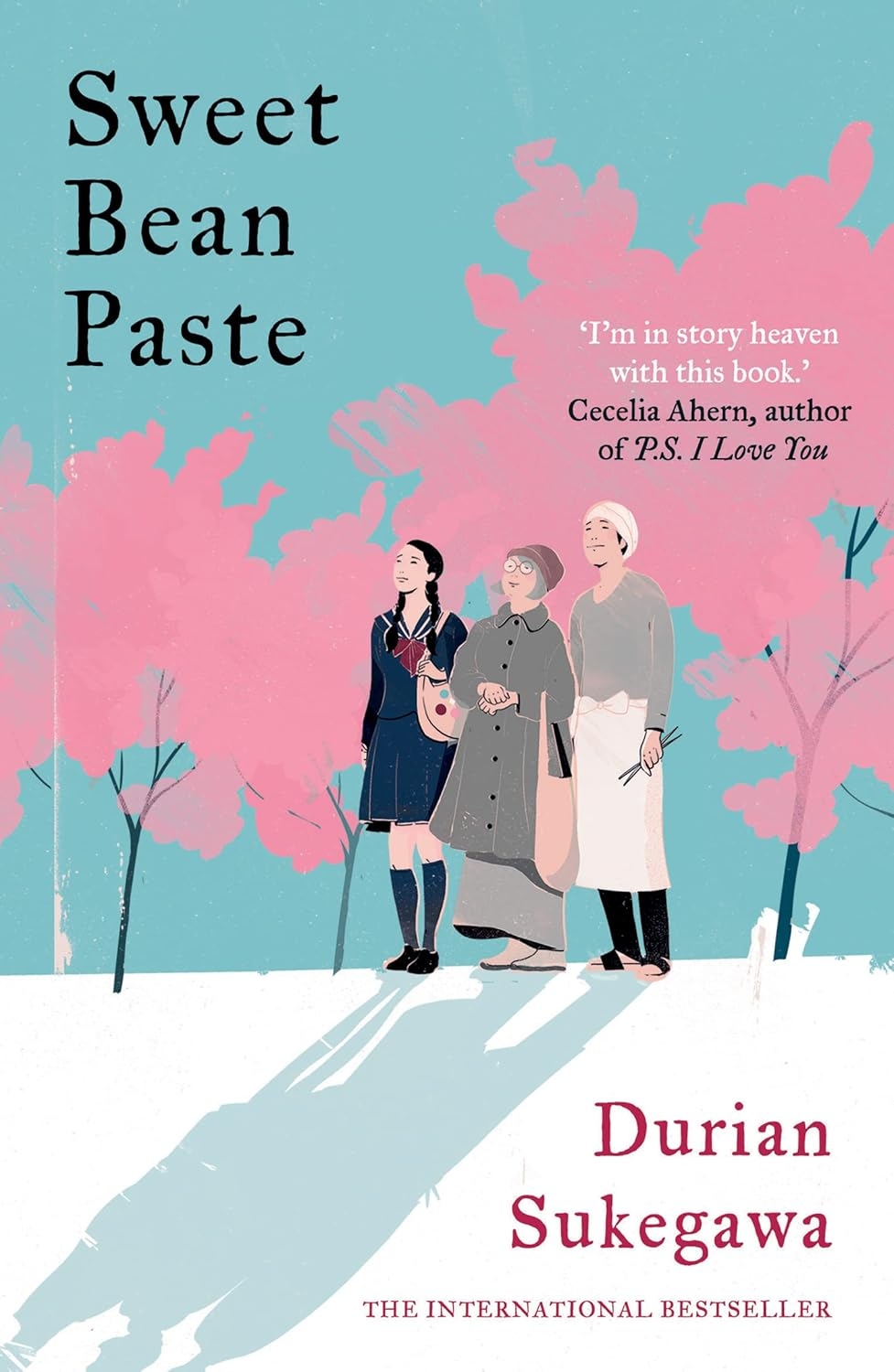Dear Reader,
June 2025: Collision. Conflict. Catastrophe. The devastating Air India tragedy. And the inescapable, gut-level fear: "That could have been me."
The world we knew seems to be fast blurring. And when there is grief, fragility and distress around us, I seek refuge in the joy of reading books. It keeps me rooted and it is my refuge from the inhumanity that we, as people, are now witnessing everywhere.
My mind is full of this beautiful book I read recently, Sweet Bean Paste by Durian Sukegawa. When you read the title, it seems pretty simple but as you delve into the story, you realise how deceptively gentle the title is for a novel that explores human suffering and social isolation in the quiet resilience of the human spirit. Initially, you would think this is a story about a Sentaro, a slightly laidback and uninspired food vendor who finds an overly enthusiastic and talented employee in an elderly woman with gnarled hands and a cheerful demeanour. That’s where the author spins magic!
In Sukegawa’s novel, we meet Sentaro, the introvert dorayaki maker, and Tokue, the cheerful elderly woman with gnarled hands who transforms his business with her extraordinary bean paste. She puts her heart and soul into making the paste, much to Sentaro’s wonder, for he had seen it as a mechanical function to earn his daily bread. He hadn’t much passion or vision but this elderly woman, with her love and passion for making the paste, alters his perspective and he begins to feel something deeper towards his own business. Meanwhile, Tokue's tragic past is not touched upon till we reach almost the end of the novel even though it represents the true heart of the novel.
Image @ Pixabay
With Tokue’s loving and patient tutelage, Sukegawa opens our eyes to confront some of the worst historical and societal wounds inflicted upon those who are isolated solely on account of a disease. That this condition can happen to anyone is a bare fact.
Let’s not forget, in the early 20th century, it was considered ‘normal’ to enforce stringent isolation policies. Across Asian countries, this was the social norm as there was a deep rooted of contagious diseases. In Indian literature and cinema, there are heartwrenching stories of how contagious diseases have fragmented local communities at times, often piercing through the cloak of empathy and goodwill.
When we examine these historical realities, we cannot help but recall what happened across many societies during COVID-19 pandemic. In the initial phase, many families kept it a secret due to fear of isolation. However, with transparent dialogues between experts and public debates on the global health crisis, people learned to help and care for each other rather than allow fear to be perpetuated. Many concerned citizens and organisations provided food kits to the marginalised sections across the country. Human values are often tested and many times, it is a few individuals with character and conviction who choose to overcome fears and question conventional norms - they are the true heroes we often forget to celebrate in our local communities.
Love triumphs over every devastating event - time and again, we have seen this happen.
Image by four symbols @ pixabay
Sukegawa, through the gentle unfolding of Tokue's story, masterfully demonstrates the power of storytelling to foster true compassion, empathy and understanding where fear and prejudice once reigned.
“Everything in this world has its own language.
We have the ability to open up our ears and minds to anything and everything.
That could be someone walking down the street, or it could be the sunshine or the wind.”
- Durian Sukegawa, Sweet Bean Paste
In Sweet Bean Paste, we learn how a simple act of friendship can transform someone's viewpoint of life, how food can be used as a balm to soothe our souls and how cooking can have healing qualities that can mend the suffering of grief-stricken hearts.
The simplicity of the depth of understanding between Sentaro and Tokue demonstrates how personal connection can triumph over societal biases and prejudices. Through stories like this, one learns how compassion, friendship and a sense of shared purpose can show the new generation to embrace inclusivity whenever there is suffering in any form.
Sukegawa, with remarkable tenderness, reveals how poise and quiet suffering with compassion can peel away the layers of social bias and historical prejudices in our minds and remind us of our shared humanity.
A deeper layer to the entire story arc pertains to how Sentaro was too late to reach Tokue and their story of friendship concluded with one last beautiful letter she sends him.
In a gentle way, the book delivers a powerful message - not to postpone for tomorrow what can be acted upon this moment, today - don’t put off reaching out to loved ones - often, death is only a whisper away.
Sweet Bean Paste is a book that moves hearts with its simplicity and precious moments. It is more than just a story about cooking delicious dorayaki; it marks a profound exploration of how the loving preparation of food, can become an act of defiance against societal cruelty.
few thoughts
Be kind - what you give others, returns to you manifold
Invest in yourself! Read as much as you can - explore authors of every genre
Translations hold a treasury of wisdom and cultural terrain - grab every opportunity to read translations from different Indian languages
Prioritise smartly. Say no to requests and negative energies that come your way.
You cannot please everyone out there - learn to prioritise what matters to you.
last word
‘If I were not here, this full moon would not be here. Neither would the trees.
Or the wind.
If my view of the world disappears, then everything that I see disappears too.
It’s as simple as that.
- Tokue’s letter to Sentaro





